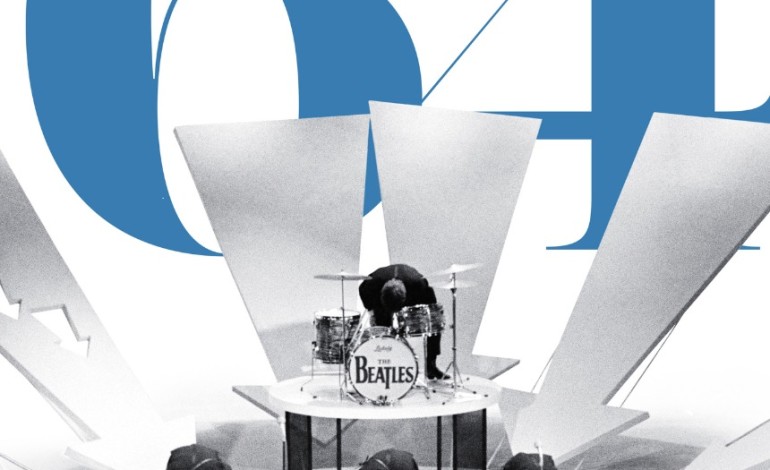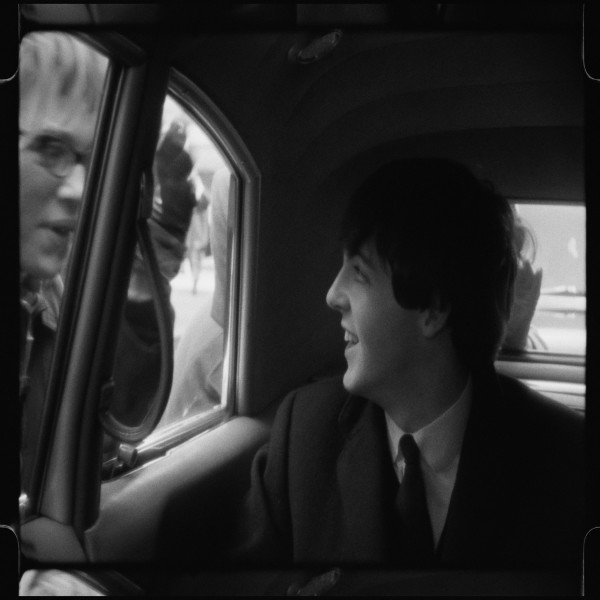
‘The Beatles ‘64’ revisits The Beatles’ transformative 1964 trip to the United States, offering a deeper look at their meteoric rise and the cultural backdrop that shaped their journey. With unseen footage, fresh interviews, and helpful contextualisation, it captures both the chaotic and the poignant moments of Beatlemania.
Set against a backdrop of a changing America—marked by racial tensions, the nuclear threat, and the aftermath of JFK’s assassination—the documentary opens with a powerful juxtaposition. A rousing JFK speech about victory cuts abruptly to sombre footage of his funeral and the aftermath, situating The Beatles’ arrival as a moment of relief for a nation in mourning.
Their 14-day US trip overwhelmed both fans and the press. Camera crews struggled to keep up with the frenzy, and reporters were swept up in the chaos, abandoning interviews to chase shots of the band. Girls outside hotels held placards proclaiming, “Elvis is dead. Long live The Beatles,” while Vickie Brenna-Costa, one of the screaming fans at the Plaza Hotel, recalls, “We couldn’t contain ourselves, it was a natural reaction.”
Directed by David Tedeschi and produced by Martin Scorsese, the documentary captures the band’s novelty in America, with footage of the Fab Four cramped in hotel rooms, surrounded by cameras, smoking and flipping through magazines. Their famed working-class humor charmed the American press, even if some cultural nuances were lost in translation. George Harrison’s later reflections underscore this, describing Liverpool as a place where “everyone’s a comedian.” He adds, “Go through the Mersey Tunnel, and the man at the toll will be a comedian.”
See The Beatles like never before.
Beatles ‘64 is NOW STREAMING, only on #DisneyPlus.#Beatles64 @johnlennon @PaulMcCartney @GeorgeHarrison @ringostarrmusic pic.twitter.com/CNnDNipwHG— The Beatles (@thebeatles) November 29, 2024
Paul McCartney’s present-day reflections provide some of the documentary’s most touching moments. At his photography exhibit ‘1963-64: Eyes of the Storm’, he gestures to photos of fans behind wooden barriers, saying, “America to us was the land of freedom. It’s funny because when we got there, we learned that wasn’t quite the story.”
Another poignant moment comes from an interview on the train from New York to Washington, where a reporter asks McCartney, “What place will the story of The Beatles have in Western culture?” McCartney laughs, brushing off the question: “You must be kidding with that question. Culture? It’s not culture.” When pressed, he offers a typically understated answer: “It’s a good laugh.” Decades later, this remark feels both modest and prescient, as the band’s cultural legacy remains undeniable.
The film also explores the emotional connection fans had with The Beatles, which went beyond mere admiration. The screaming, the placards, and the devotion weren’t just mania; they were expressions of a deeply personal connection. Author Joe Queenan becomes emotional when discussing hearing them for the first time, sitting alongside his sister at the radio.
Ringo Starr recalls the trip as the moment he felt the band had truly “made it,” exclaiming, “We were here! America! New York!” But for John Lennon, the craziness had darker undertones. Photographer Harry Benson recounts Lennon’s unease about the violence in America, amplified by JFK’s assassination, and how he was worried about how fast a good situation could turn bad.
Amidst the frenzy, the band maintained a sense of playfulness. One clip shows Lennon casually playing with a melodica in a hotel room, unknowingly crafting the intro to ‘Strawberry Fields Forever’, a song which would be released three years later.
Fans have shared their opinions of the documentary, with many praising its ability to place the footage within the worlds of so many people. From the reporters to the fans, and even the band, the documentary covers a variety of angles, with interviews with figures like filmmaker David Lynch, and musician Ronald Isley, who the Beatles covered with their version of ‘Twist and Shout’
Comment
byu/antdude from discussion
inTheBeatles
The documentary is neatly divided, with their iconic ‘Ed Sullivan Show’ appearance as the halfway mark. Contextualising their fame, clips of philosopher Marshall McLuhan and composer Leonard Bernstein highlight the bands role as the first “TV band” and the musical complexity that won over critics and fans.
The film ends poignantly with Lennon’s reflection: “The Beatles didn’t lead anything. We were in the crow’s nest of a ship sailing to a new world, and we just said, ‘Land ahoy.’”

